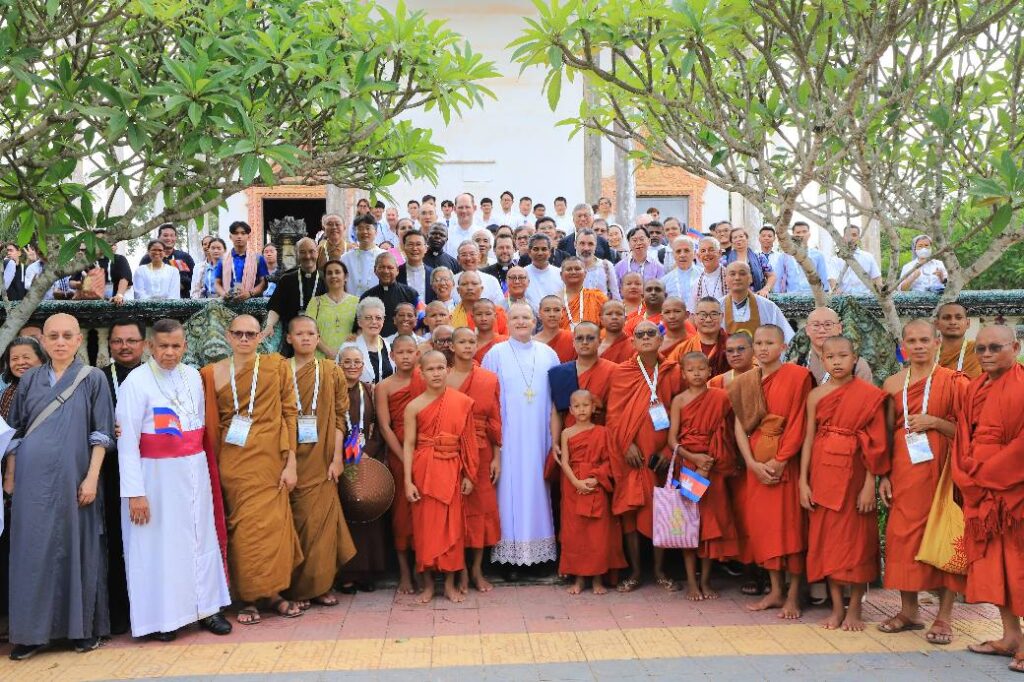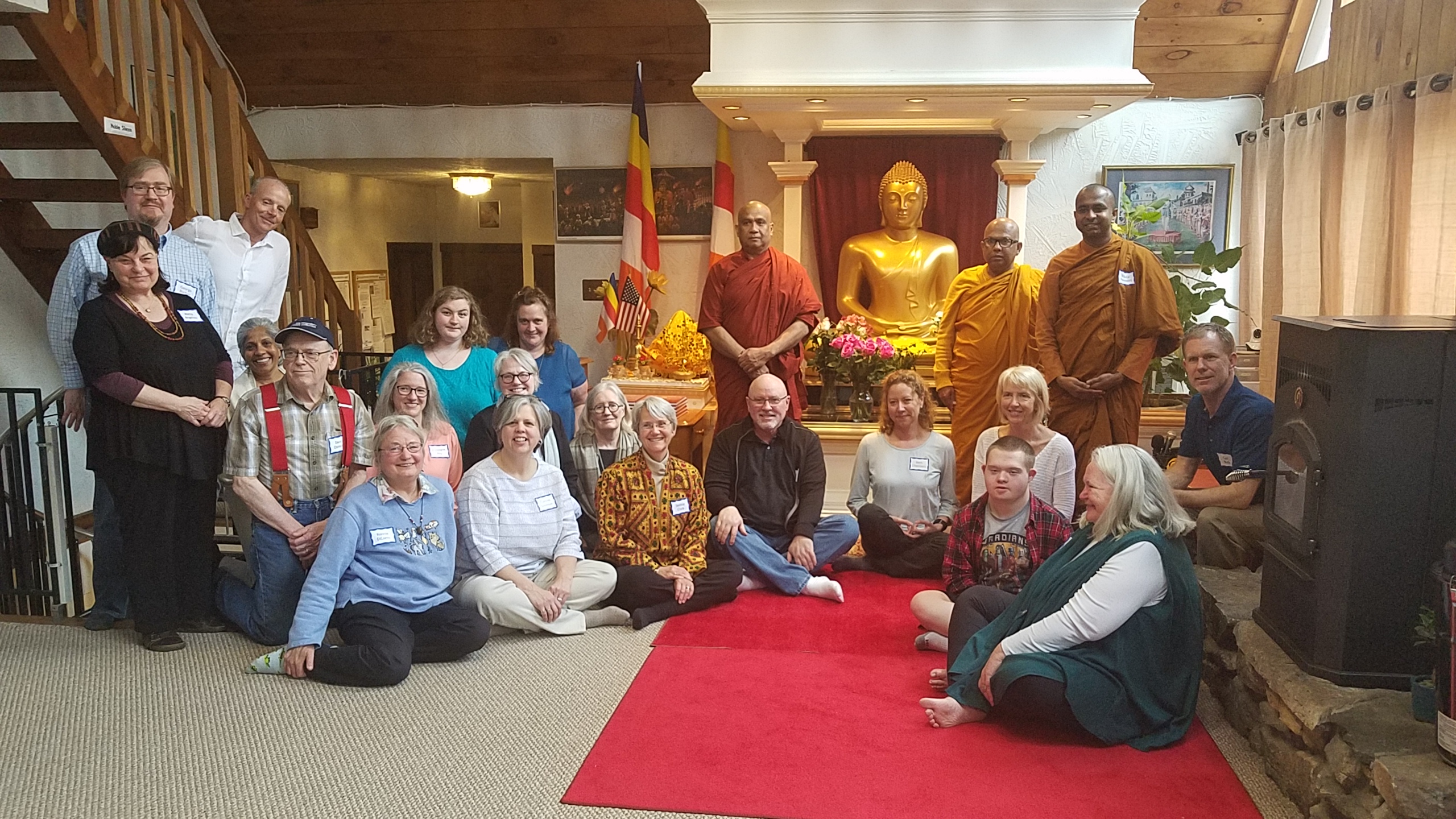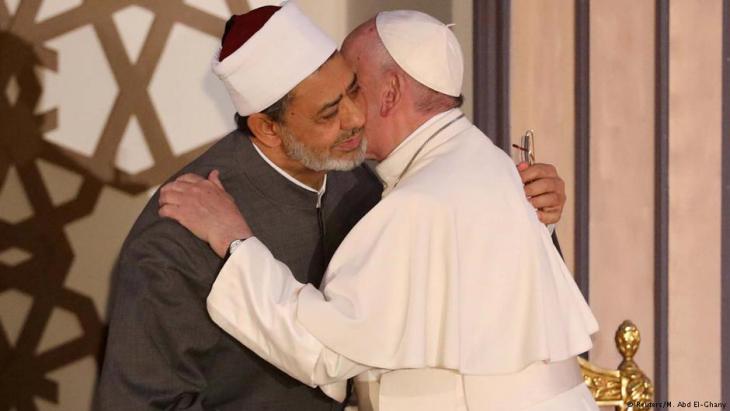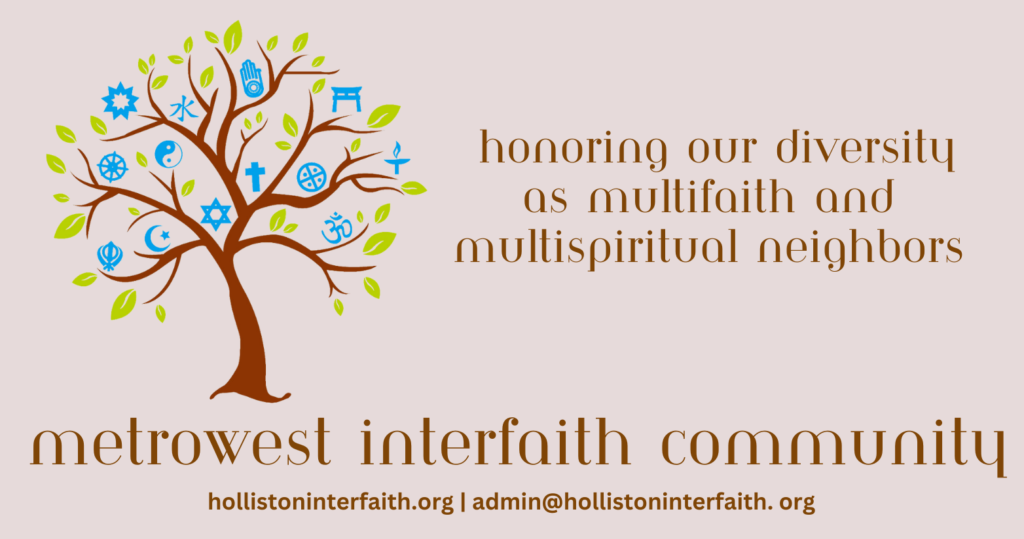Catholic Interfaith Relations
From the Mission Blog | Final Statement: Eighth Buddhist-Christian Colloquium (Phnom Penh, 27–29 May 2025)

Eighth Buddhist-Christian Colloquium: Buddhists and Christians Working Together for Peace through Reconciliation and Resilience at the Catholic Pastoral Center, Phnom Penh, Cambodia, 27-29 May 2025
Final Statement
The Dicastery for Interreligious Dialogue, in collaboration with Preah Sihanouk Raja Buddhist University and the Catholic Church in the Kingdom of Cambodia, convened the Eighth Buddhist-Christian Colloquium in Phnom Penh from 27 to 29 May 2025. The event was held under the theme “Buddhists and Christians Working Together for Peace through Reconciliation and Resilience.”
Gathering approximately 150 Buddhist and Christian participants from Cambodia, Hong Kong, India, Italy, Japan, Laos, Malaysia, Mongolia, Myanmar, Singapore, South Korea, Sri Lanka, Taiwan, Thailand, Vietnam, the United States, and the Holy See—along with two representatives from the Federation of Asian Bishops’ Conferences—the Colloquium was a testimony to the shared desire for peace and mutual understanding. The opening ceremony was honored by the presence of the Minister of Cult and Religion of the Kingdom of Cambodia and other religious leaders in Cambodia.
As the event draws to a close, the participants want to express the following sentiments and resolutions:
Pope Francis’ Legacy of Dialogue with Muslims
Twelve years of building bridges between the world’s two largest faiths
A Conversation with Rabbi Sharon Brous: Building Community in a Fractured World
The 2024 Manekin-Clark Lecture featured Rabbi Sharon Brous, author of the best-selling “The Amen Effect: Ancient Wisdom to Mend Our Broken Hearts and World,” in conversation with Rabbi Jessy Dressin of Third Space at Shaarei Tfiloh and ICJS Executive Director Heather Miller Rubens, Ph.D.
In her work, Brous explores building a meaningful community in an age of loneliness and alienation. She warns that this disconnection fuels extremist social and political movements, fostering a crisis that is not only political but also spiritual. She emphasizes that caring and curious relationships are vital for personal healing and promoting a more connected society. This event is co-sponsored by Third Space at Shaarei Tfiloh. (Institute for Islamic, Christian, and Jewish Studies. https://icjs.org/)
Check out the Work of our Metrowest Interfaith Community
Download the latest E-Newsletter | Check out our Website

The Virgin Mary: Bridging Catholics and Muslims

The Journal of Social Encounters published Fr. Carl Chudy’s comparative study on the description of Mary in the Gospels and the Qur’an that “opens us up to the profound mystery of God that transcends the boundaries of both of our faiths…” Access the Journal here.
Being Catholic with Other Faiths

Although Vatican II opened a new door for the Catholic Church to our relationship with other faiths, it did not yet go as far as to say that interreligious dialogue is part of the evangelizing mission of the church. This came through the Pontificate of John Paul II through three subsequent documents: Dialogue and Mission (1984), the mission encyclical Mission of the Redeemer (1990), and Dialogue and Proclamation (1991). These teachings reflect the growing awareness of the centrality of interfaith dialogue in the very mission of the church. For Pope John Paul II, dialogue is fundamental for the Church, based on the very life of the Triune God, as well as on respect and love for every human person: “As far as the local churches are concerned, they must commit themselves in this direction, helping all the faithful to respect and to esteem the values, traditions, and convictions of other believers.”
This dialogue is not a mere discussion about each other’s beliefs. For the church there are several ways this dialogue can play out.
- The first is the dialogue of life, in which believers of different religions bear witness before each other in daily life to their own human and spiritual values and help each other live according to those values to build a more just and fraternal society.
- The second is the dialogue of works and action, where collaboration with other faiths is opportune in the social, economic, and political spheres to build a more humane society.
- The third is the dialogue of theological exchange, which often involves specialists and leaders in different faith traditions in the search for ultimate truth.
- Finally, the dialogue of religious experience is an opportunity to share prayer and religious experiences in our common search for the Absolute.
The Teaching of the Catholic Church on Interfaith Dialogue
- Vatican II: Relation of the Church to Non-Christian Religions
- Vatican II: Mission ad Gentes
- Redemptoris Missio
- Dialogue and Proclamation
US Catholic Bishops on Global Mission and Interfaith Dialogue
- Teaching the Spirit of Mission ad Gentes: Continuing Pentecost Today
- Best Practices to Teach the Spirit of Mission
- Interreligious Dialogue in the USA
- Resources
- Videos
Interfaith Organizations to Connect With
- Interfaith America
- Hartford International University of Religion and Peace
- North American Interfaith Network
- Peace Islands Institute
- World Parliament of Religions
- The Common Word
- United Religions Initiative
- Religions for Peace
- The Religious Pluralism Project of Harvard University
- Interfaith Radio
- Shoulder to Shoulder
- Islamic Network Group
- The Bridge Initiative at Georgetown University
- Institute for Islamic, Christian, and Jewish Studies
Interfaith Journals
- The Interfaith Observer
- Inter-religious Studies
- Current Dialogue Magazine – World Council of Churches
- Evangelical Interfaith
- The Muslim World Journal
Essays on Dialogue by Fr. Carl Chudy, SX
- Redemptive Suffering Judaism, Christianity, and Islam
- A Catholic Approach to Islamophobia
- Mary: A Bridge Between Islam and Catholicism
- Jesus as a Gulf and a Bridge in Christian Muslim Understanding
- See, Judge, Act: A Model for Catholic Communities to Engage in Refugee Ministry
- Faith and Doubt in a Secular Age
- My Interfaith Dialogue Journey: God Between the Lines
- The First Proclamation and the New Evangelization in the United States
- Common Ground: Conversations Among Humanists and Religious Believers
Sign up for our Interfaith E-Newsletter
The Metrowest Interfaith Dialogue Project brings multifaith neighbors together from our community in Holliston, Massachusetts. Sign up for our monthly e-newsletter.
By submitting this form, you are consenting to receive marketing emails from: . You can revoke your consent to receive emails at any time by using the SafeUnsubscribe® link, found at the bottom of every email. Emails are serviced by Constant Contact


